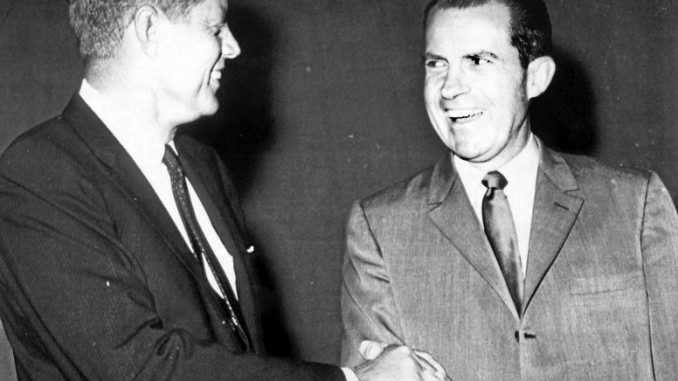
OPINION
This was printed in Monday morning’s Daily Post.
BY DAVE PRICE
Daily Post Editor
With tomorrow’s election, many of us are dreading the vote-counting and litigating that could go on for days, weeks or months. The last close presidential election was in 2000, and it took 36 days before George W. Bush emerged as the winner.
 But if tomorrow’s election is close, I hope the loser will do what Richard Nixon did in 1960 — concede quickly and avoid a constitutional crisis.
But if tomorrow’s election is close, I hope the loser will do what Richard Nixon did in 1960 — concede quickly and avoid a constitutional crisis.
You read that right.
Richard Nixon.
In 1972, Nixon’s re-election campaign burglarized the Democratic National Committee offices in the Watergate complex and then Nixon tried to cover it up. He resigned in 1974 just days before he would have been impeached.
This man who undermined American’s faith in the government in the 1970s was a shining example of a good citizen in 1960.
Narrow margins in two states
On Election Night in 1960, John Kennedy’s victory margin was razor-thin. The difference was two key states, Illinois and Texas.
In Illinois, Kennedy won by just 8,000 votes. Republicans suspected Kennedy prevailed because of cheating by Chicago Mayor Richard Daley. You’ve probably heard the old joke that even the dead vote in Chicago. This is when the joke started.
Kennedy won by 46,000 in Texas, the home of running mate Lyndon Johnson. Historians would later say that Johnson knew a thing or two about rigging elections in Texas.
President Dwight Eisenhower urged Nixon, his vice president, to challenge the results and not concede.
But Nixon told his friend, newsman Earl Mazo, that “our country cannot afford the agony of a constitutional crisis.”
Nixon would later write in a 1978 memoir that a recount would have taken a year and a half, putting Kennedy’s election in doubt. Nixon said it would “tear the country into pieces.”
“And what if I demanded a recount and it turned out that despite the vote fraud, Kennedy had still won? Charges of ‘sore loser’ would follow me through history and remove any possibility of a further political career,” Nixon wrote.
Nixon conceded on national television the day after the election.
Accept the verdict
Historian John Zeitz points out that on Jan. 6, 1961, Nixon discharged his responsibility as president of the Senate and presided over the congressional tally of the electoral college vote.
“In our campaigns,” Nixon told a joint session of Congress, “no matter how hard they may be, no matter how close the election may turn out to be, those who lose accept the verdict and support those who win.”
Eight years later, Nixon would win the presidency. And in 1974, he would leave the White House in disgrace.
Editor Dave Price’s column appears on Mondays. His email address is [email protected].

Election night, Trump declared victory and claimed there is “fraud” afoot to steal the election from him.This morning, Trump proxies have filed the first of many lawsuits – this one in Michigan. The strategy is to stop counting where Trump is ahead or at least stop the final selection of Electoral College slates by mid-December so the Electoral College deadline passes. Then, the next President would be selected by the House of Representatives in January – one vote per state. Right now, Republicans have a majority of House members in 26 states (22 Democrat and two states with an equal number).
Richard Nixon looks honorable compared to Trump.
Once Trump is ousted, how long will it take to put him in prison? Can he pardon himself?
If Trump is ousted, he would surely resign just in time for then-President Pence to pardon him. But he would still be subject to state prosecutions and for crimes committed after the pardon. Trump wasn’t kidding about leaving the country if he loses. He may flee. But, as I cautioned above, there is still a path to a second term.
I’m from Chicago. Even the dead vote. It’s not a joke.
Your November 3 column was quite prescient. One would think he would have the decency to concede..but, then, what am I think. He doesn’t understand what decent behavior is…Just go, Donald!